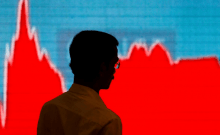"Make in India", the manufacturing push given by the Modi government last September, will be showcased on a grand scale in February next year in Mumbai.
The first flagship event of "Make in India" to be held in India's financial capital will feature sector-wise, state-wise pavilions, exhibitions of products and manufacturing processes, besides conference rooms and meeting lounges for B2B, G2B, G2G meetings.
The Department of Industrial Policy and Promotion (DIPP) and trade body, the Confederation of Indian Industry (CII), are involved in the planning of the event that will see representations from global investors, states, export promotion councils, local trade bodies, buyers and union ministries.
Maharashtra, Gujarat, Andhra Pradesh and Jharkhand have confirmed participation while export promotion councils are likely to confirm their participation by the end of December, 2015, Amitabh Kant, secretary, DIPP, who made a presentation a few days ago in Ahmedabad.
Sectors that are covered under the "Make in India" programme include automobile, auto components, aviation, defence manufacturing, leather, food processing, mining, oil and gas, ports and shipping, textiles and tourism and hospitality.
Prime Minister Narendra Modi will inaugurate the event on 13 February.
On 14 February, there will be CNN Asia Business Forum meeting, apart from sectoral seminars and country sessions.
On 15 February, there will be a "Make in Mumbai" session and "Maharashtra Investor Summit". The next day will see Modi's home state organising "Gujarat Investor Summit", besides "Andhra Pradesh Investor Summit". A "Make in India" magazine will be launched on 17 February.
Besides, the event will have interactive digital displays, art and cultural shows and shopping carnivals.
During the period October 2014 to September 2015, the total FDI under the "Make in India" initiative in terms of equity investments stood at $32.87 billion, the government said in a press statement on 22 December.
The maximum investments were in computer hardware and software, $4.9 billion, and services, $4.6 billion, accounting for almost 30% of the inflows.
Trading as an investment category saw inflows of $4 billion, while the automobile sector secured investments worth $3.15 billion.

















